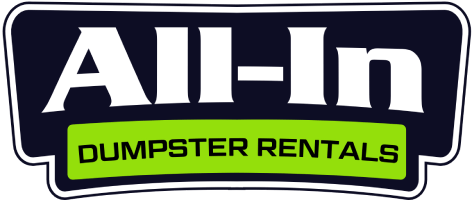The Power of Community: Sharing Dumpster Costs in Asheville’s Unique Neighborhoods
When fall leaves blanket our Asheville yards or spring cleaning fever hits our mountain communities, the amount of waste can quickly become overwhelming. Here in Western North Carolina, where neighborhoods like Montford and West Asheville have their own tight-knit character, community cleanups have become a local tradition. But the cost of individual dumpster rentals can add up quickly.
Having worked with countless neighbors across Buncombe, Henderson, Haywood, and Madison counties, I’ve seen firsthand how collaborative waste management transforms not just our properties but strengthens our mountain community bonds. Asheville residents face unique challenges—steep driveways, narrow mountain roads, and seasonal debris that accumulates faster than you’d expect—making shared dumpster rentals an especially practical solution.
Why Sharing a Dumpster Makes Sense in Asheville
Asheville’s distinct community layout and environmental ethos make it perfect for shared waste management solutions. Many of our neighborhoods feature clusters of homes with shared access points or community spaces. This proximity creates natural opportunities for collaboration.
The financial benefits are straightforward. A 15-yard dumpster that might cost $350-450 for a week’s rental becomes much more affordable when split between 3-5 neighbors. That can drop individual costs to under $100 per household while providing access to much more disposal capacity than each would need separately.
Beyond the cost savings, there’s a deeper value: these collaborative cleanups strengthen neighborhood connections. In a time when many communities struggle to maintain their identity amidst rapid growth, these projects create natural opportunities to meet, work together, and reinforce what makes living in Asheville special.
Organizing Your Neighborhood Cleanup: Getting Started
The first step in coordinating a shared dumpster rental is simply reaching out to your neighbors. In Asheville’s friendly communities, this is often easier than you might think. Here’s a simple approach that works well in our area:
Start with direct conversations. Catch neighbors while walking your dog along the parkway trails or shopping at the local farmers market. A casual “I’m thinking about renting a dumpster for yard cleanup next month—would you be interested in sharing costs?” can get the ball rolling.
Next, establish a point person. Every successful neighborhood project needs someone willing to handle communications and coordination. This doesn’t mean doing all the work—just being the central contact for questions and arrangements.
Once you have interest, create a simple sign-up system. A shared online document works well, but in some of Asheville’s more established neighborhoods, even a paper sign-up sheet passed door-to-door can be effective. Include potential dates, cost estimates, and ask about specific cleanup needs.
Remember that in Asheville’s diverse neighborhoods, cleanup needs vary widely. Historic district residents might need help with renovation debris, while those in newer developments may focus on landscaping waste or seasonal cleanouts.
Practical Logistics: Making Sharing Work
When your neighbors have expressed interest, it’s time to tackle the practical details. Here’s what works best in Asheville’s unique environment:
Consider location carefully. Our hilly terrain and sometimes narrow roads mean that not every property is suitable for dumpster placement. Look for a level area with good access that won’t block traffic or create safety issues. Sometimes a community common area or a neighbor with a larger driveway offers the best solution.
Be mindful of our local regulations. Different neighborhoods in Asheville have specific rules about waste disposal, especially historic districts and HOA-governed communities. Check whether you need any special permissions before scheduling delivery.
Work with a local company familiar with Asheville’s unique challenges. National chains may not understand the complications of delivering to a steep mountain driveway or navigating our historic neighborhoods. A local provider like ours knows exactly how to handle these situations.
Create a fair usage schedule. Rather than a free-for-all, assign time slots or capacity limits to ensure everyone gets their fair share. This is especially important in larger communities where demand might exceed capacity.
Handling the Financial Side
Money matters can complicate even the friendliest neighborhood relationships. Here’s how to keep things simple and transparent:
Collect payments upfront whenever possible. This prevents the awkward situation of chasing down contributions after the dumpster is gone. Most local rental companies require payment when booking anyway, so gathering funds beforehand makes sense.
Use digital payment apps that are popular in Asheville. Services like Venmo, PayPal, or Cash App make it easy for neighbors to contribute their share quickly and with a clear record of payment.
Consider a small buffer in your collection amount. Unexpected weight charges sometimes occur, especially with heavier materials like construction debris or wet yard waste that’s common after Asheville’s rainy seasons. Collecting an extra 10% provides cushion for these potential overages.
Be transparent about all costs. Share the rental quote, any potential extra fees, and exactly how the total is being divided. This transparency builds trust among neighbors and makes future collaborations more likely.
What Can (and Can’t) Go in Your Shared Dumpster
One of the most important aspects of shared dumpster use is ensuring everyone understands what materials are acceptable. When multiple households contribute, there’s greater risk of prohibited items finding their way into the mix.
Create a clear list of approved materials and share it with all participants. For most residential cleanups in Asheville, this includes general household items, furniture, yard waste, and non-hazardous debris.
Explicitly note prohibited items. Hazardous materials, electronics, tires, and certain appliances can’t go in standard dumpsters. This is especially important to highlight since Buncombe County has specific disposal requirements for these items.
Consider Asheville’s strong environmental values by encouraging proper sorting of recyclables. Many items that residents might casually toss in a dumpster could actually be recycled, repurposed, or donated. Provide information about Asheville’s recycling programs and nearby donation centers as alternatives.
Success Stories: How Asheville Neighbors Make It Work
A North Asheville cul-de-sac of six homes organizes quarterly cleanups using a shared 15-yard dumpster. They’ve developed a rotation system where the dumpster is placed in a different driveway each time, spreading both the convenience and any minor inconveniences equally. Their group text message chain keeps everyone coordinated on timing and capacity.
In West Asheville, where many homes have limited off-street parking, a block of neighbors negotiated with a local church to use their parking lot for dumpster placement during their spring cleanup. In exchange, they included the church grounds in their cleanup efforts—a win-win arrangement that strengthened community ties.
A mountain cabin community in Henderson County, just outside Asheville proper, pools resources twice yearly for major cleanups. With homes scattered across steep terrain, individual dumpster delivery would be prohibitively expensive. Their shared approach not only saves money but has evolved into weekend work parties that combine cleanup with community cookouts.
Solving Common Challenges
Even with careful planning, shared dumpster projects can hit snags. Here’s how to handle typical issues in Asheville’s neighborhoods:
When one neighbor overuses the shared capacity, gentle education about fairness usually resolves the issue. Having agreed-upon capacity limits per household helps prevent this problem before it starts.
Asheville’s unpredictable mountain weather can disrupt cleanup schedules. Build some flexibility into your plans, and consider extending the rental period if a major storm is forecast during your cleanup weekend.
Occasionally, a neighbor might back out after committing. Having one or two households on a “waitlist” provides backup participants who can step in to share costs if needed.
Dumpster placement challenges are common in our hilly terrain. If your originally planned location proves unsuitable, be flexible about alternatives. Sometimes what looks good on paper doesn’t work in practice once the delivery truck arrives.
Beyond Cleanup: Building Stronger Communities
The shared dumpster is really just the beginning. Many Asheville neighborhoods have found that these collaborative cleanups open doors to other joint projects and deeper connections.
Consider expanding your cleanup beyond individual properties to include nearby public spaces. Many neighborhood groups in Asheville extend their efforts to local parks, greenways, or creek beds, making an even bigger impact on our beautiful mountain city.
Document your success with before-and-after photos shared on community social media. This not only celebrates your accomplishment but often inspires neighboring communities to organize their own collaborative projects.
Use the momentum from a successful cleanup to explore other shared neighborhood initiatives. Many Asheville communities have leveraged these relationships into tool-sharing programs, community gardens, or even emergency preparedness networks.
Getting Started Today
If you’re ready to organize a shared dumpster rental in your Asheville neighborhood, here are the key steps to get things moving:
Start with a simple survey of your neighbors to gauge interest and potential timing. Even an informal poll can give you a sense of whether there’s enough interest to proceed.
Research local rental options with companies that understand Asheville’s unique geography and neighborhood characteristics. Get clear quotes that include all potential fees so you can present accurate cost information to your neighbors.
Develop a simple written agreement that outlines costs, scheduling, acceptable materials, and responsibilities. This doesn’t need to be legally complex—just clear enough that everyone understands the expectations.
Remember that in Asheville’s close-knit communities, word travels fast. A well-organized neighborhood cleanup can quickly become a model for surrounding areas, creating a ripple effect of collaborative waste management across our mountain city.
Shared dumpster rentals represent more than just cost savings—they’re about building the kind of connected, resourceful community that makes Asheville such a special place to live. By working together on these practical projects, we strengthen the bonds that help our unique mountain neighborhoods thrive.

